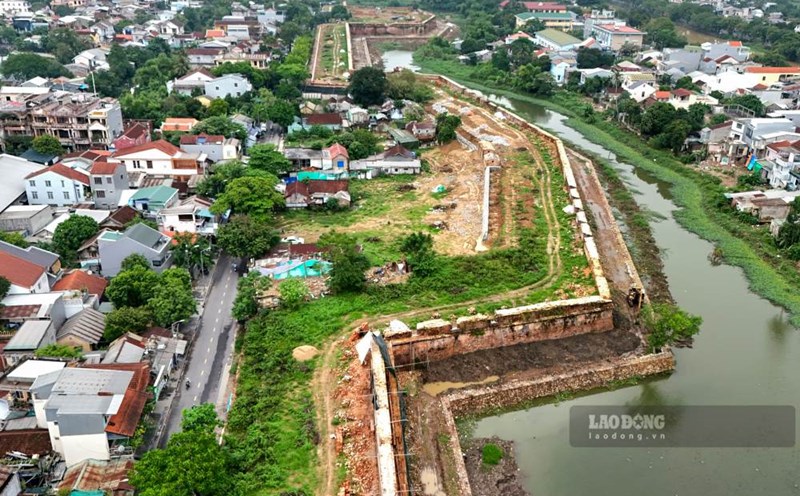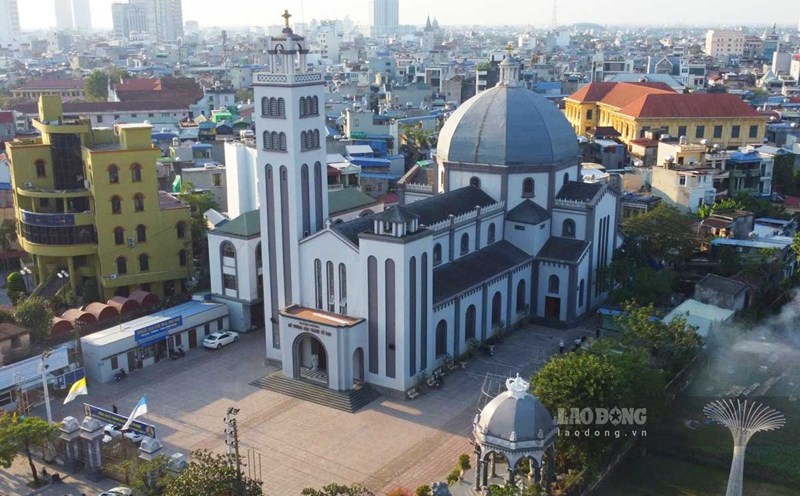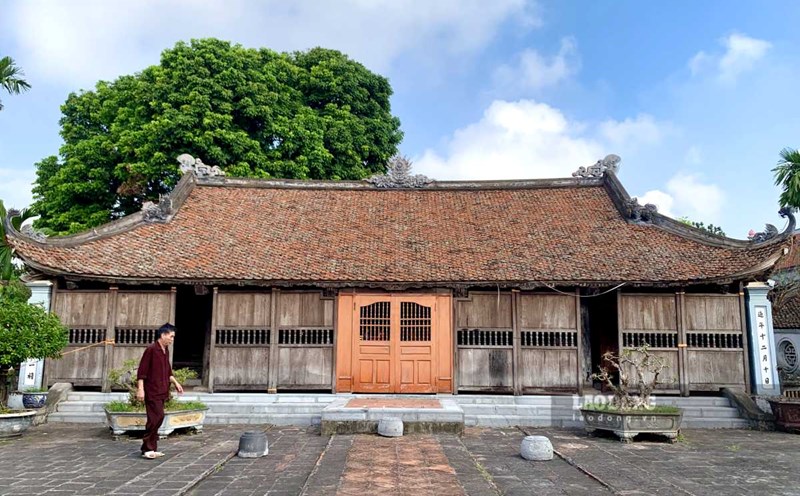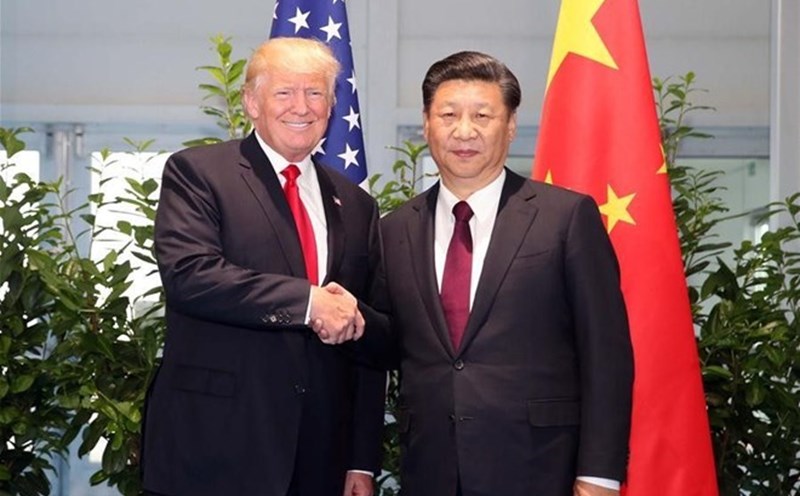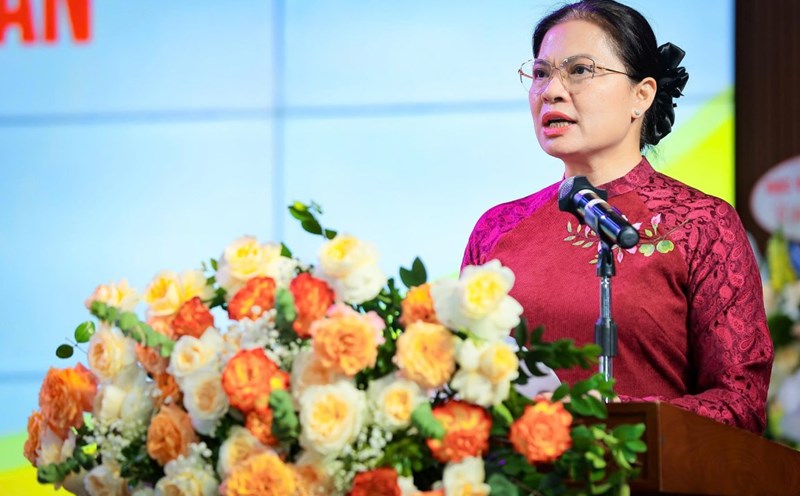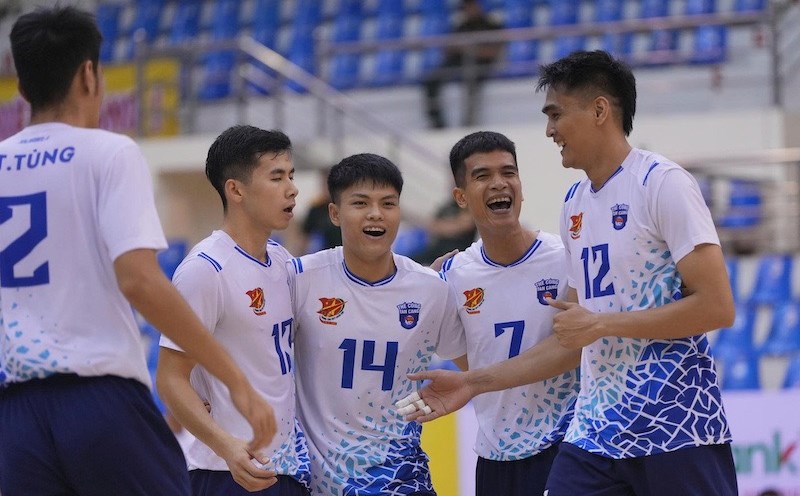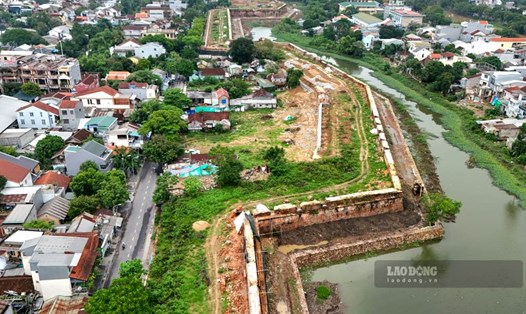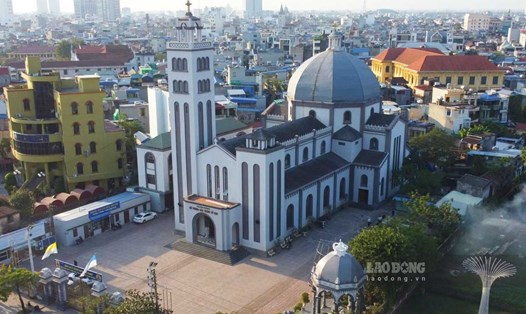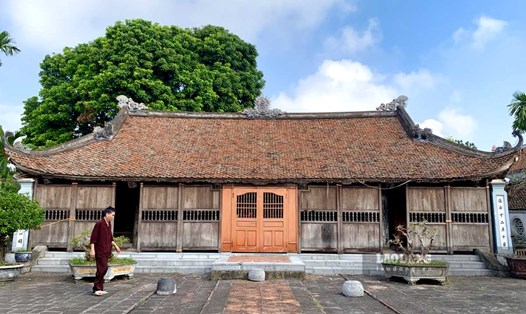Help the king suppress the rebellion and protect the country
According to historical records, To Hien Thanh (1102 - 1179), nicknamed Phi Dien, was born in Le hamlet, O Dien commune, Vinh Khang district, Kinh Ky land. Today it is Ha Mo village, Hong Thai commune, Dan Phuong district, Hanoi city. Historical records and other historical books do not clearly record To Hien Thanh's origin, nor do they record anything about his imperial examinations.
According to the book “Tu Liem district exam results” by bachelor Bui Xuan Nghi, To Hien Thanh passed the Minh Kinh bac hoc exam (equivalent to a doctorate) in the year Mau Ngo (1138) under the reign of Ly Than Ton. The stele, engraved on the Van chi stele of Tu Liem district erected in the 25th year of Tu Duc (1872) and the historical document “Ban phu tien trieu chu danh khoa bi” also recorded that To Hien Thanh passed the Minh Kinh bac hoc exam in the year Mau Ngo, under the reign of Ly Than Ton, and served as a high-ranking mandarin under two kings of the Ly dynasty.
According to “Complete Annals of Dai Viet”, in the winter, October of the year Canh Tuat (1141), the fortuneteller Than Loi, claiming to be the son of Nhan Tong, led his followers to Thai Nguyen, recruited 800 native soldiers, and plotted a rebellion. In January, the year Tan Dau (1141), Than Loi proclaimed himself Binh Vuong, plundered and occupied Phu Luong prefecture, and brought his followers to rob the capital Thang Long.
The King sent the Grand Counselor Liu Yu'er and the Grand Tutor Hua Yuan to attack Than Loi. Historical records say: "In the winter, on the 1st day of the 10th month, he sent Anh Vu to attack Luc Lenh Chau and captured more than 2,000 of Than Loi's followers. Loi fled to Lang Chau. Grand Tutor To Hien Thanh captured Loi and handed him over to Anh Vu to be put in a cage and sent back to the capital." This event happened in the winter of 1141. Than Loi was beheaded, showing off his power in the capital Thang Long.
From here, the role of the famous mandarin To Hien Thanh in helping the king defend the country was systematically recorded in historical records. Historical records say: "In the year of Ky Mao (1159), the 20th year of Dai Dinh, summer, month 5, Ngu Hong and Ai Lao (Laos) rebelled, the king sent To Hien Thanh to fight, captured people, buffaloes, horses, elephants, gold, silver, and many jewels, and appointed Hien Thanh as Grand Tutor". Ngu Hong in the past was a small country, settled in the Northwest region of Nghe An, Ha Tinh today. According to "Complete Annals of Dai Viet", around 1159 during the Ly Dynasty, Ngu Hong became an internal territory of Dai Viet.
In February, the 21st year of Dai Dinh (1160), King Ly Anh Tong sent To Hien Thanh to recruit people, choosing strong and healthy people to join the army. He chose generals, those who were well-versed in military strategy and martial arts, to manage military affairs. In November, 1160, the king sent To Hien Thanh as General, Do An Di as Deputy General, leading 20,000 troops to patrol the southwestern coast, to keep the border peaceful.
The King personally escorted them to Than Dau seaport at Dai An port (that is Than Phu port, Thanh Hoa) before returning to the capital Thang Long. In the fall, the 7th month of Dinh Hoi year (1167), under the reign of Chinh Long Bao Ung, he sent Grand Chancellor To Hien Thanh to attack Champa. In October, Champa sent an envoy to offer pearls and products to surrender. The King issued an edict allowing To Hien Thanh to bring his troops back. From then on, Champa submitted, observed the vassalage ceremony, and offered tributes in full.
He was an official under two kings, Ly Anh Tong and Ly Cao Tong. The book “Summary of Vietnamese Historical Chronology” commented on the famous official To Hien Thanh: “He was an upright person, serving as a mandarin to the position of Thai Pho and then Thai Uy under King Ly Anh Tong. He was an upright and honest person” (Ibid., p. 56).
Historian Ngo Thi Si highly appreciated To Hien Thanh's qualities, loyalty and integrity: "Every man left behind great achievements, but only one person had enough talent, character, loyalty, and took on very difficult tasks, making the king safe on the throne and the country enjoy peace and happiness, only To Hien Thanh was the best" (Vietnamese History Summary).
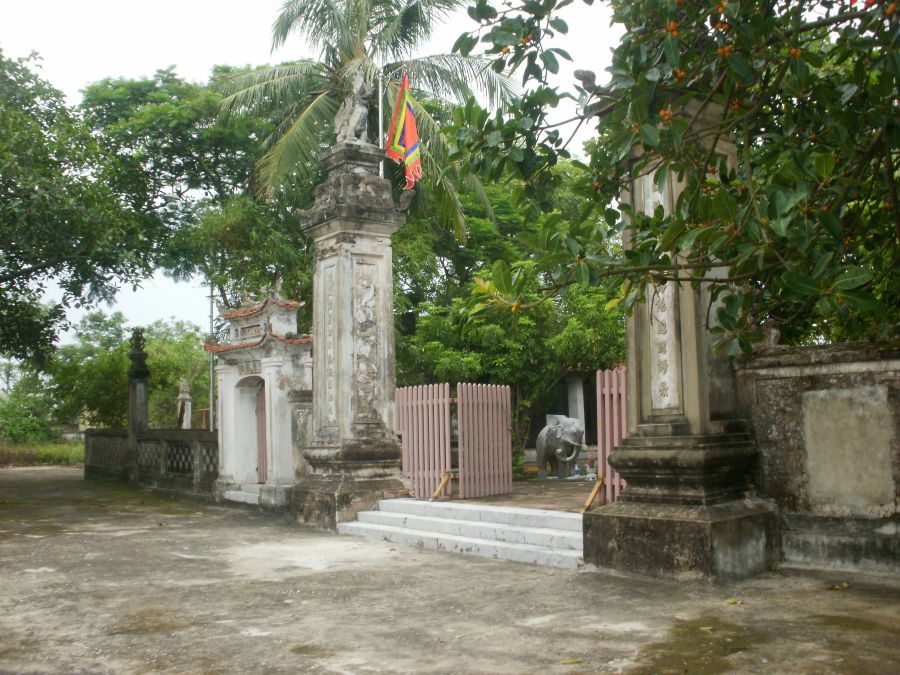
Do not accept bribes, support orphans, and recommend talented people to help the country when they are about to die.
According to historical records, in September of the year of Giap Ngo (1174), Crown Prince Long Xuong committed a crime, was imprisoned, deposed, forced to become a commoner, and banished to live among the people. The King summoned Prime Minister To Hien Thanh and said: "The Crown Prince is the root of the country, Long Xuong has done something against the law, I want Long Trat (Long Can) to continue the great cause, but he is still young and afraid he cannot handle it, if he waits until he is older, I am old and weak, what can I do?"
The king thought and decided to establish Long Trat as Crown Prince. When entrusting the orphan, King Ly Anh Tong appointed To Hien Thanh as regent, helping the Crown Prince: "In the spring, January of the year At Mui (1175), the book established Long Trat as Crown Prince. Appointed To Hien Thanh as Nhap Noi Kiem Hieu, Thai Pho, Binh Chuong Quan Quoc Trong Su, with the title of Vuong, to help Crown Prince Long Trat" (Complete Annals of Dai Viet).
The King was seriously ill, the Queen asked to establish Long Xuong, but Ly Anh Tong did not listen, issued an edict to assign To Hien Thanh to help depose Crown Prince Long Trat, and unified the country according to the old rules. At that time, the Queen Mother wanted to depose and establish, but was afraid that To Hien Thanh would object, so she gave gold and silver to his wife, Nu Thi. To Hien Thanh said to Nu Thi: "I am a great minister who received the order of the late Emperor to help depose the young King, now if I use bribes to depose and establish, how can I face the late Emperor in the afterlife?" Then she resolutely returned it, refusing to accept it.
Afterwards, the Queen Mother called Su Xiancheng again to coax him in a hundred ways. Su Xiancheng replied to the Queen Mother: “Doing unjust things to gain wealth, loyal and righteous people would not be happy to do. Moreover, the words of the late emperor are still in your ears, has Your Highness not heard about Yi Yin and Huo Guang? I do not dare to obey the imperial edict.”
From then on, the Queen Mother's bribery and dethronement ended. On the day of the end of the national mourning, Queen Mother Chieu Linh held a banquet for the officials in the palace and said: "The late emperor has passed away, the new king is still young, the Champa nation was disrespectful, and the northerners invaded the border. You all owe the court's favor, so you should take care of your country's affairs. Today, there is no better strategy than to reinstate the Crown Prince, so that the country can last long and the people can be at peace."
The officials clasped their hands and said: “The Grand Tutor To Hien Thanh received the clear orders of the Emperor. Your Majesty (the Queen Mother) has also advised him many times, we do not dare to disobey.” To Hien Thanh commanded the imperial army, strictly enforced orders, rewarded and punished fairly, all the people in Dai Viet submitted, no one dared to disobey orders or rebel.
When To Hien Thanh fell seriously ill, there was a mandarin named Tham tri Chinh su Vu Ta Duong who took care of him day and night by his bedside. The advisor Tran Trung Ta, because he was busy with state affairs, had no free time to visit him.
When he was seriously ill, the Queen Mother personally visited him and asked: "If anything happens to you, who will replace you?". To Hien Thanh replied: "Tran Trung Ta can replace you". The Queen Mother said: "Tan Duong serves medicine every day, why don't you mention him?" Hien Thanh replied: "Because Your Majesty asked who can replace me to help the king, I mentioned Trung Ta. As for who else can take care of me, besides Tan Duong, who else is there?" The Queen Mother praised him as a loyal minister. In 1179, when Grand Tutor To Hien Thanh died, the king ate less for 3 days and took 6 days off from the court.
Historian Phan Huy Chu highly praised To Hien Thanh's personality: "He was a high-ranking mandarin in the court, skillful in handling the turmoil, even though the waves were beating and shaking him, the stone pillar remained steadfast and did not move, finally making the top peaceful and the bottom in harmony, truly not ashamed of the demeanor of a great mandarin of ancient times" (Page 222 of Lich Trieu Hien Chuong Loai Chi).
Commenting in “Complete Annals of Dai Viet”, historian Ngo Si Lien said: “To Hien Thanh, in the event of entrusting his orphaned son to the government, was completely loyal and skillful in handling the situation. Although he was shaken by the wind and hit by the waves, he still stood firm like a stone pillar in the middle of the stream, making the upper and lower levels peaceful and in harmony, not ashamed of the demeanor of the great ministers of ancient times. Moreover, when he was about to die, he still recommended virtuous people for the country, not for personal favors. The Queen Mother did not use Hien Thanh's words, which was unfortunate for the Ly Dynasty.”
While recovering from illness and near death, she still thought about keeping the country peaceful and the people happy when she chose the Grand Counselor Tran Trung Ta as regent, entrusting her orphan son to replace him to assist King Cao Tong. It was a pity that the Queen Mother did not use To Hien Thanh's strategy, so that the Ly dynasty gradually weakened and was transferred to the Tran dynasty through political marriage.
After his death, the people of the North and North Central regions built temples to worship To Hien Thanh and honored him as a Saint. He is worshiped at the relics of To Thanh Temple, Trung Ha and Trung Thuong Communal Houses, Ninh Binh Province; Dong Temple in Dong Mon Commune, Ha Tinh City; May Temple in Luu Vinh Son Commune, Thach Ha District; and the national relic of Hoi Thong Family, Nghi Xuan District (Ha Tinh) worshiping To Hien Thanh as the tutelary god of Hoi Thong Commune. In Thanh Hoa Province, there are 72 temples to worship To Hien Thanh. The temple in Cam Doi Village is considered the main place of worship.
To Hien Thanh was awarded by King Ly Anh Tong a land in Vien Lang village, Hai Dong road, now in Viet Tien commune, Vinh Bao district, Hai Phong city. When he died, people built a temple here and he was honored as the tutelary god of Vien Lang village, Vinh Bao district, Hai Phong.

